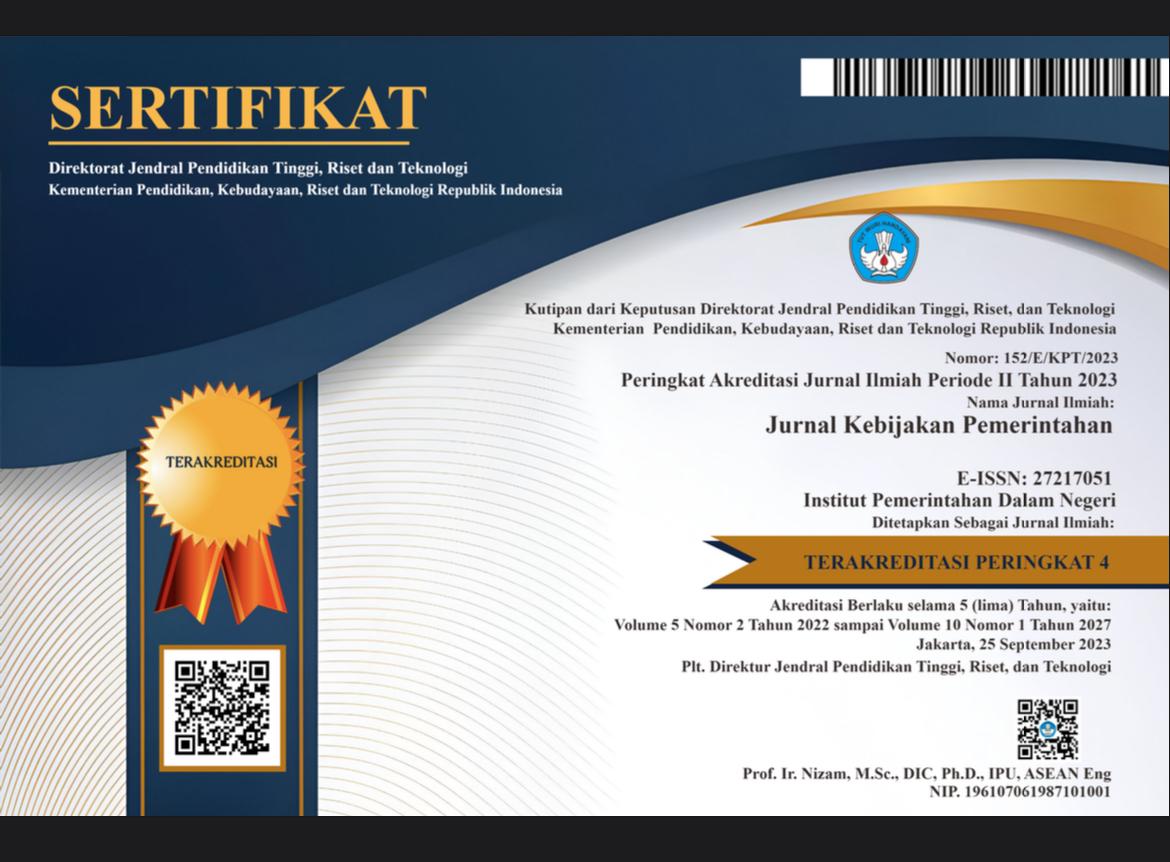DARI TEKNOLOGI KE KEADILAN: MENGKAJI PENGALAMAN PENGGUNA SIPRAJA DAN DIGIPAY DALAM INOVASI PELAYANAN PUBLIK
DOI:
https://doi.org/10.33701/jkp.v8i1.5408Abstract
Public service innovations, such as SIPRAJA and DigiPay, have become one of the government's strategies to improve service efficiency by adapting to technological developments. This research is a systematic literature study that analyzes and interprets findings from previous qualitative research through a phenomenological lens to understand users' experiences in public services.The results of the analysis have revealed that public service innovations have increased the accessibility and efficiency of public services for the community, although gaps hamper them in digital literacy and infrastructure. This leads to varying levels of community satisfaction and perceptions of justice. Some people are satisfied and find it easy to access services, while others feel the opposite due to a less inclusive design that causes a sense of injustice. In terms of community participation in public service innovation, it is still consultative and has not yet reached a collaborative level. This research highlights the need for service design based on co-creation, digital literacy training, and infrastructure equity to achieve equity of access and satisfaction for communities. This research also highlights the importance of user experience-based evaluation in the digital transformation of public services, emphasizing that public innovation cannot be separated from citizens' subjective experience.
Keywords: Phenomenological approach, Public service innovation
Downloads
Downloads
Published
How to Cite
Issue
Section
License
Copyright (c) 2025 Faradina Selsa Putri, Ani Yuni Setyowati, Akhmad Irham Faujik

This work is licensed under a Creative Commons Attribution-ShareAlike 4.0 International License.
Authors who publish with this journal agree to the following terms:
- Authors retain copyright and grant the journal right of first publication with the work simultaneously licensed under a Attribution-ShareAlike 4.0 International (CC BY-SA 4.0) License that allows others to share the work with an acknowledgment of the work's authorship and initial publication in this journal.
- Authors are able to enter into separate, additional contractual arrangements for the non-exclusive distribution of the journal's published version of the work (e.g., post it to an institutional repository or publish it in a book), with an acknowledgment of its initial publication in this journal.
- Authors are permitted and encouraged to post their work online (e.g., in institutional repositories or on their website) prior to and during the submission process, as it can lead to productive exchanges, as well as earlier and greater citation of published work (See The Effect of Open Access).








